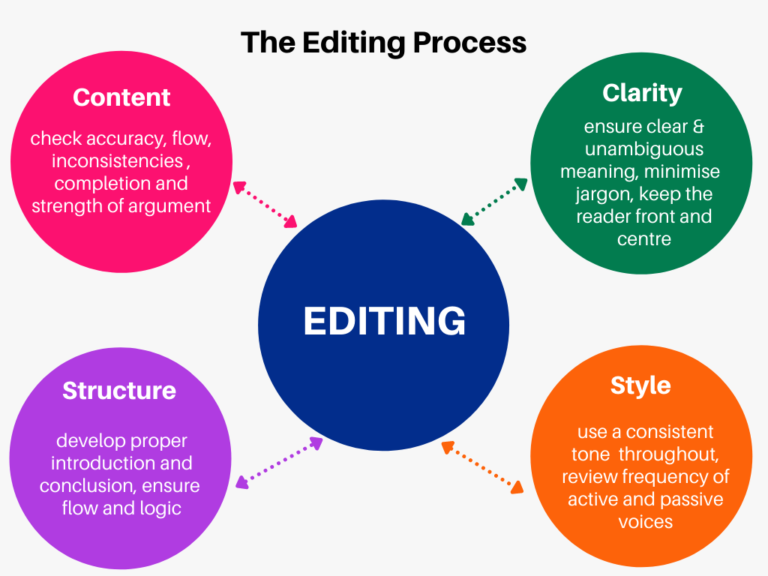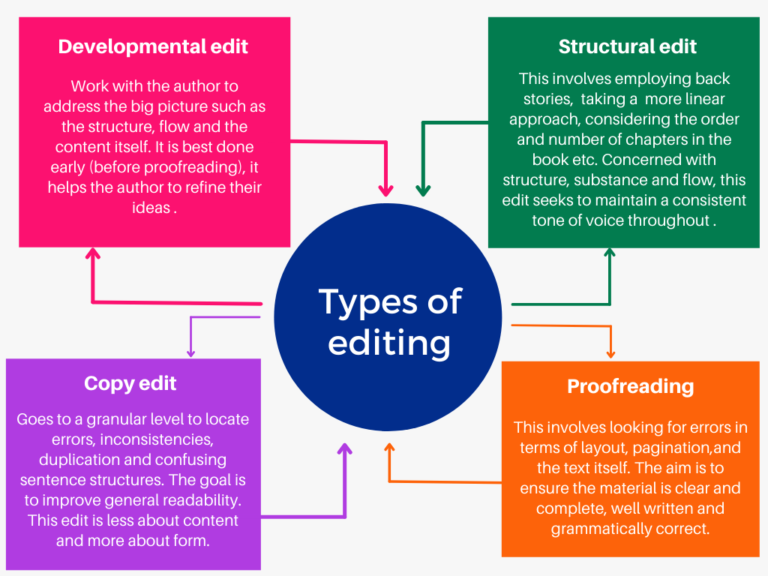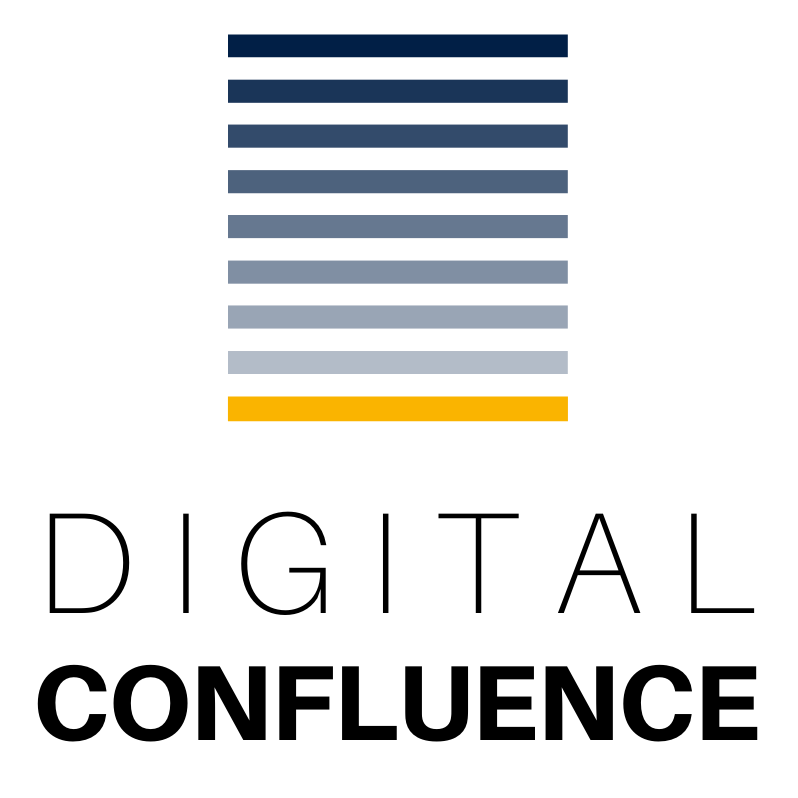Editing SERVICES
what editing involves and who needs it
Editing is the process of revising content to ensure that ideas are presented as clearly as possible by:
- checking the structure and flow of the material
- improving accuracy and readability
- reviewing grammar and spelling
- removing or minimising jargon

editing timeframes and considerations
An article may be edited within a few hours, while a book may be edited over a period of weeks or months. The editing process may also involve several revisions to the manuscript.
The timeframe for editing may vary based on several factors:
- complexity of subject matter
- deadline
- scope of work
- content format
- requirement for research to be conducted
- total word count.
Virtually anything that involves a business or individual developing or crafting a message, across a range of mediums, for an intended audience, is worthy of editing. This may be undertaken for books, manuscripts, articles, speeches, and blog posts but may also be necessary for videos and scripts.
the case for editing
You have made significant investments in starting and growing your small to mid-sized business. Regardless of your business offering or industry sector, you want your business to appear credible, professional and consistent.
Polished content contributes to a positive brand image and good writing enhances the clarity of your content. Make it easy for your audience to understand you.
Your editor can:
- help you refine your message and check for weaknesses and errors
- ensure you write for impact
- maintain good flow and pace, crucial for retaining the reader’s attention
types of editing and why this matters

WHEN TO HIRE AN editor
When you have a completed piece of writing
Providing your editor with a manuscript that is still undergoing further changes or which continually incorporates new material will result in duplication of effort, an increased timeframe for editing, and higher costs. Complete your manuscript before seeking editing services. Alternatively, provide a single chapter for review and feedback before continuing on.
When you know what you are looking for
Be clear about your editing requirements. Do you want feedback on the content and flow, a second opinion, or a granular-level review?
When you know that this piece of writing is critical to your work
If the manuscript plays an important role in establishing your expertise, increasing visibility, or broadening your work experience, it makes good sense to ensure that it does its best job of representing you accurately and credibly.
When there are certain outcomes you want
If you are aiming to build a specific audience, contribute to particular projects, or attract a certain type of work, investing in the tools and resources that can assist you, including an editor, makes perfect sense.
what do you look for in an editor?
Experience
Ideally, your editor has extensive experience in this field, having supported numerous customers. Review the editor’s background and profile and talk to their previous customers to understand their work style and approach. This upfront research will be beneficial but be clear that an editor need not be a subject-matter expert.
Budget
Editors have varying fee structures based on experience and capacity. Identifying your budget early on helps you find an editor within your financial range. Ensure your expectations align with the typical costs of editing projects.
Capacity
Editors charge based on time and project complexity. Experienced editors may have higher fees so inquire about their capacity early to plan accordingly.
Portfolio
A robust and broad portfolio is a key indicator of a good editor. Request samples of their work to assess suitability. Editors who are also writers and bloggers may provide insight into their style, expertise and subject matter niches.
Communication
You will be sending your editor your ‘baby’, your prized possession in which you are deeply invested. Being able to work well together and communicate easily are important factors in your project’s success. Your editor needs to understand your goals and vision and be able to support you. Invest time to get to know your editor, working style, expectations and how well you can collaborate. It is important to be clear about your editor’s fees, approach, and work processes.
Timeframe
After discussing their background and project details, your editor should be able to provide an estimate of time required. Assess this against their outlined workflow and deliverables for a realistic understanding of the project timeline.
Balance
A great editor does not just focus on the flaws, inconsistencies and shortcomings of your writing. They will also point out what’s wonderful, strong and unique about your work. Look for an editor who maintains a balanced perspective.
Digital Confluence provides editing and proofreading services. Feel free to reach out with questions or to obtain an obligation-free quote.
